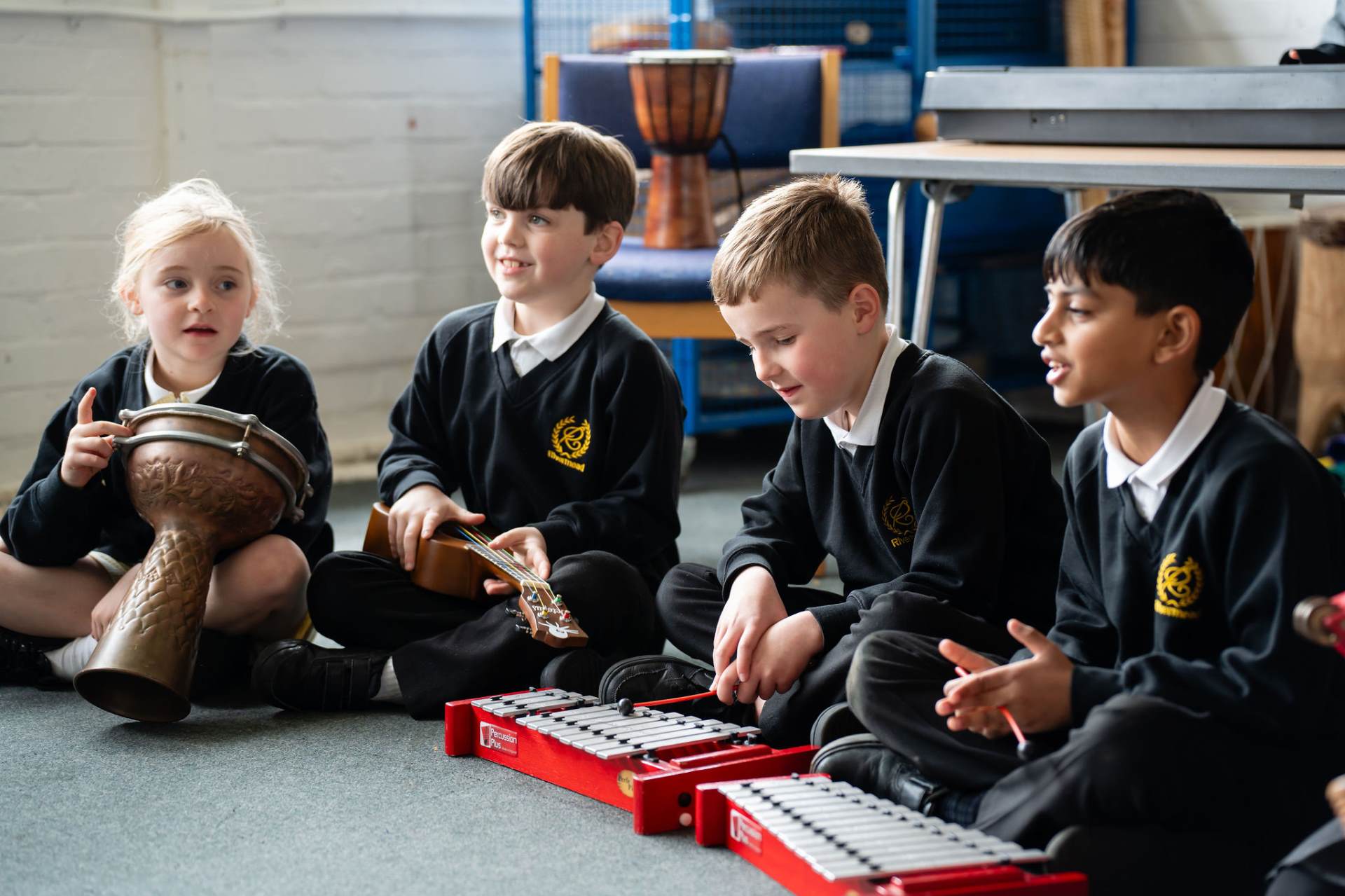Music

At Rivermead, we believe music is a powerful outlet for expression, connection, and creativity. Our music curriculum is designed to foster a love of music, develop confidence in performance and composition, and equip pupils with the knowledge and skills to enjoy music throughout their lives.
We aim for every child to feel that they can be musical. Our curriculum develops children as confident performers, composers, and listeners. Pupils explore music from a wide range of cultures and time periods, promoting respect, appreciation, and cultural understanding.
Our music curriculum supports development in six key areas:
-
Voice – singing independently and collaboratively;
-
Instruments – playing tuned and untuned instruments accurately;
-
Creating – composing and improvising;
-
Listening – responding to and evaluating music using key vocabulary;
-
Reading – using notation including the Kodály method;
-
History – understanding music in cultural and historical context.
Music at Rivermead also builds transferable skills such as teamwork, oracy, confidence, and creativity.
How we teach music
Music is taught weekly through three themed units per term, with a spiral curriculum that builds knowledge and skills year-on-year. Lessons are practical, hands-on, and inclusive, with opportunities for movement, performance, and cross-curricular links (e.g. music tied to the Romans or Holi celebrations).Pupils learn in a dedicated music room using a wide variety of instruments and resources. In Year 5, pupils explore digital music creation. We follow an adapted Kapow scheme to ensure progression, with specialist music teaching in Years 1–5 and strong subject knowledge support for all staff.
Enrichment opportunities include:
-
Annual year group productions (EYFS–Y6)
-
Rocksteady music groups and performance opportunities
-
School choir participation in community and national events, including Young Voices at the O2
-
Music for Joyful Movement, assemblies, and well-being initiatives
Pupils at Rivermead show enthusiasm and pride in their music learning. Progress is assessed through both formative and summative means, using a whole-school tracking system that records outcomes against each lesson’s objective. The spiral structure ensures pupils revisit and refine skills over time.
Knowledge organisers and assessment tools support teachers and pupils in tracking learning and identifying next steps. By the end of Key Stage 2, children leave with a secure foundation in musical knowledge, an appreciation for diverse musical traditions, and the confidence to perform, create, and enjoy music both in and beyond school.








